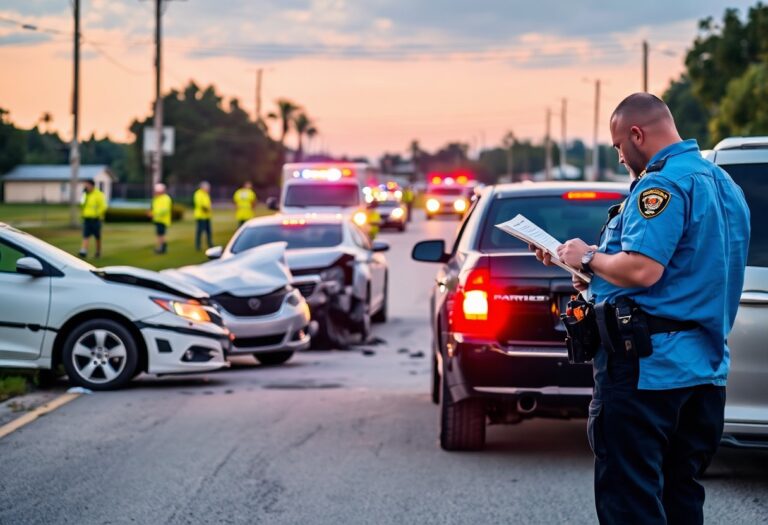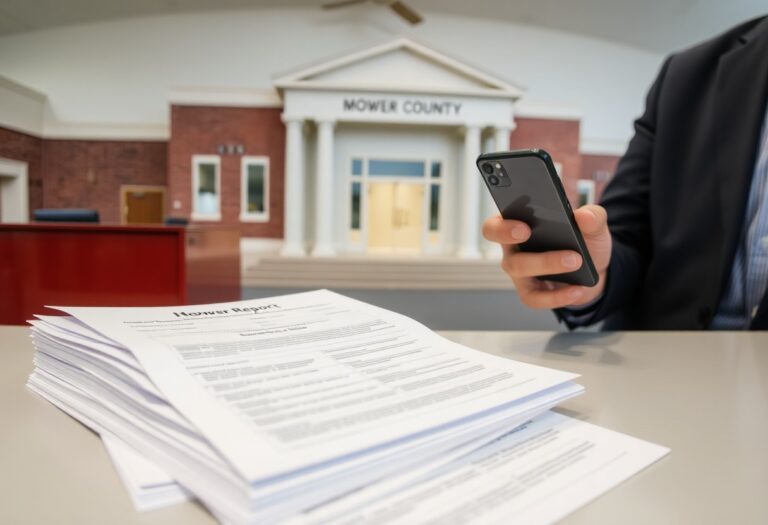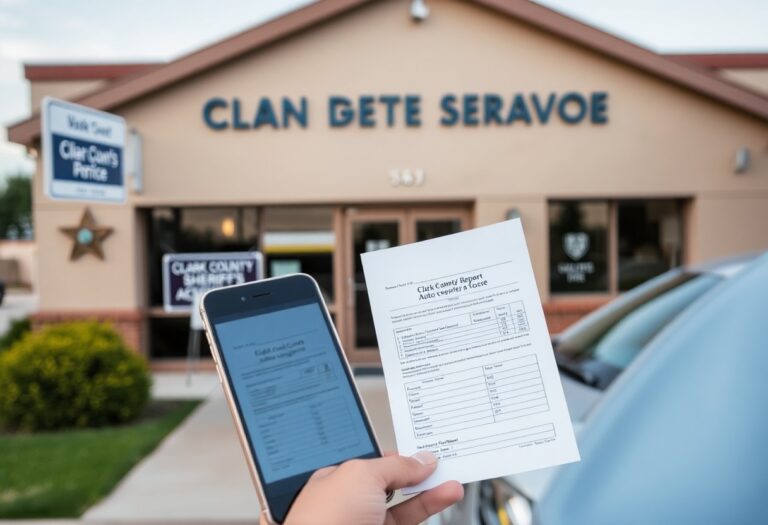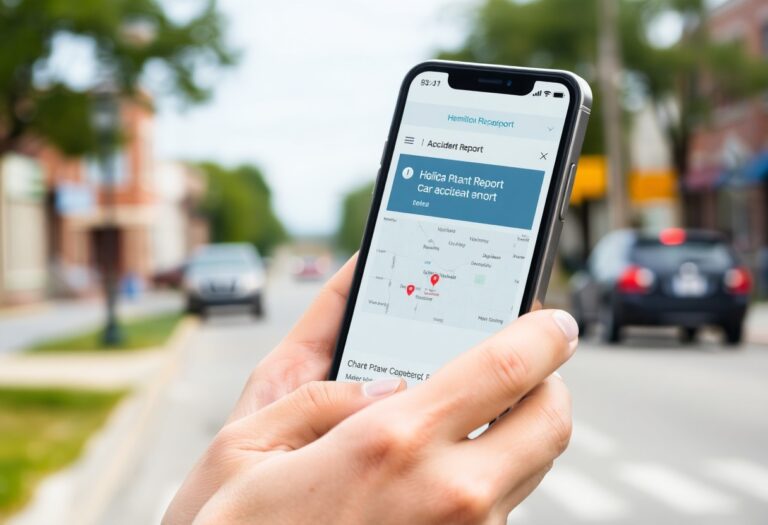You may find yourself in need of a crash report following an accident in Monroe County, Mississippi. Obtaining this crucial document can help you navigate insurance claims and legal matters effectively. In this guide, you’ll discover the step-by-step process for requesting your crash report, including the necessary forms, fees, and where to submit your request. Whether you’re involved in a minor fender bender or a more serious incident, having access to your report is important for protecting your rights and ensuring a smooth resolution.
Demystifying the Crash Report Process
The process of obtaining a crash report in Monroe County, Mississippi, can seem daunting, but understanding its components can simplify your experience. A crash report is a formal document created by law enforcement when an accident occurs, detailing the specifics of the incident. It provides vital information such as the date, time, location, participating vehicles, and involved parties. Knowing how to navigate this process will ensure you obtain the necessary documentation quickly and effectively.
What Constitutes a Crash Report?
A crash report encompasses official documentation generated by law enforcement after an automobile accident. This report usually includes details such as the names and contacts of drivers, vehicle registrations, witnessed testimonies, and an assessment of fault. In Monroe County, these reports are maintained by the respective law enforcement agencies and may contain diagrams, photos, and other pertinent evidence from the scene of the accident.
Who Can Request a Crash Report?
Access to crash reports is often restricted to certain individuals. Generally, the involved parties, such as drivers, passengers, insurance companies, and legal representatives, have the right to request a copy. In some cases, witnesses may also be entitled to a report if they can demonstrate a legitimate interest or reason for their request. Always check with the issuing authority for specific regulations, as these can vary.
In Monroe County, those directly involved in the accident or their representatives typically find it straightforward to request crash reports. For instance, if you were a driver or passenger in the accident, you would need to provide your identification and possibly proof of your involvement to access the report. Insurance companies often request reports as part of their evaluation of claims, while attorneys may need them for legal proceedings. If you are a witness, your request will be evaluated on a case-by-case basis, and demonstrating your connection to the incident may be necessary. Knowing whom you can approach and the required documentation will streamline the process significantly.
Step-by-Step Guide to Requesting Your Crash Report
| Request Method | Description |
| Online | Utilize the official Monroe County website to submit your request electronically. |
| In-Person | Visit the local law enforcement agency to obtain your report directly. |
Online Request Procedures
Requesting your crash report online is a straightforward process. You’ll need to navigate to the Monroe County official website, where there’s a dedicated section for crash report requests. Fill out the required form with your details, including the date of the incident and your contact information. After submission, you can expect to receive your report via email, usually within a few days.
In-Person Request Protocols
For those preferring to handle matters face-to-face, visiting your local law enforcement agency is advisable. Simply head to the designated office during normal business hours, and you can request your crash report in person. Be prepared to provide relevant details about the incident, such as the date, location, and involved parties’ information.
During your visit, bring a form of identification, as staff may request to confirm your identity. Engaging directly with the personnel can also provide immediate answers to any questions you might have regarding the report or the process itself. The advantage of this method lies in faster resolutions and the possibility of clarifying any details on the spot.
Necessary Documentation and Fees
To successfully retrieve your crash report, you must come equipped with certain documents. Typically, a valid photo ID is necessary to verify your identity. In addition, there may be a nominal fee associated with obtaining the report, often around $10, payable by cash or check.
Fees can vary, so confirming the exact amount before visiting is wise. Moreover, some agencies may also require additional information related to the crash, such as a case number or specific details of the incident, to facilitate a smoother report retrieval process. Being adequately prepared can save you time and potential frustration during your request.
Interpreting Crash Reports: Key Elements to Understand
Understanding your crash report involves deciphering several key elements that provide insight into the incident. Familiarizing yourself with each section can help you assess liability, damage, and compliance with traffic laws. The specific information included in the report can be pivotal in insurance claims or legal proceedings, ensuring you grasp the full context of the event. By focusing on the details outlined below, you can extract the necessary information required for your needs.
Decoding Technical Language and Terminology
Crash reports often contain technical jargon and specialized terminology that can be confusing. Terms like “BAC” (Blood Alcohol Content) or “collision diagram” might appear, carrying significant weight in evaluating circumstances surrounding the accident. Understanding these terms will give you clarity on the factors that influenced the event. For instance, a high BAC indicates potential impairment, while a collision diagram illustrates how the incident unfolded spatially.
Identifying Important Details: Locations, Time, and Parties Involved
Key details, such as the exact location of the crash, the time it occurred, and the parties involved, are vital in evaluating the incident. These specifics lay the groundwork for understanding traffic patterns, visibility conditions, and recounting the events leading to the crash.
Pinpointing the location where the accident occurred reveals the intersection or roadway involved, which is vital for determining any hazardous factors. The time, including date and hour of the incident, can show trends, like peak traffic periods or poor visibility at night. Additionally, knowing the identities and roles of all parties involved—including drivers, passengers, and witnesses—provides insight into liability and accountability. These details are central in constructing a factual narrative, which could be influential in resolving disputes or claims. Accurate identification helps clarify misunderstandings and may streamline communication with insurance adjusters or legal representatives.
Common Roadblocks and How to Navigate Them
Obtaining your crash report may present various roadblocks that could hinder the process. Delays and denials are common obstacles, but knowing how to address these issues can save you time and stress. The key lies in understanding the procedures and being proactive about your requests, ensuring you have important documentation ready to facilitate smoother interactions with law enforcement and report processing offices.
Delays in Report Processing
Processing times for crash reports can vary widely, often leading to frustration if you need the document urgently. Delays might arise from incomplete investigations, high volumes of requests, or administrative bottlenecks. Typically, reports can take anywhere from several days to a few weeks to be finalized, depending on the complexities of the case.
Denials and How to Appeal
Receiving a denial for your crash report request can be disheartening, especially when you believe you have valid reasons to obtain it. When a request is denied, it often results from insufficient information or legal restrictions. In such cases, you have the right to appeal the decision, which involves resubmitting your request with additional documentation or clarifications, or addressing the specific reasons for the denial directly.
Appealing a denial typically requires a formal process. You’ll want to contact the agency that denied your request and ask for a detailed explanation outlining the reason for the denial. Once you have that information, prepare any necessary documents or forms to rectify the situation. For example, if your request was denied due to lack of identification, provide a valid ID along with your appeal. Remaining persistent and organized throughout the appeal will improve your chances of success in obtaining the necessary crash report.
The Legal Implications of Crash Reports
The legal landscape surrounding crash reports in Monroe County, Mississippi, is multifaceted. These documents serve as official records that encapsulate imperative details about an accident, providing a foundation for various legal proceedings and claims. Both parties involved in a crash can use these reports to establish liability, which can significantly influence your case’s outcome. If you’re seeking compensation or facing litigation, the information contained in these reports can prove pivotal in navigating the complexities of your situation.
Using Crash Reports in Insurance Claims
Insurance companies heavily rely on crash reports to evaluate claims effectively. By analyzing the details within the report, including witness statements and contributing factors, they can determine fault and assess damages accurately. Your understanding of how these reports outline the accident can empower you to advocate for a fair settlement. Keep in mind that discrepancies or omissions in the report might affect your claims process, making it imperative to review the information thoroughly.
The Role of Crash Reports in Legal Proceedings
Crash reports act as crucial evidence in legal proceedings stemming from vehicle accidents. They provide a narrative of the event, featuring critical details such as road conditions, vehicles involved, and statements from law enforcement. This documentation can be introduced in court to substantiate your claims or defenses, influencing the judge and jury’s perceptions of liability.
Moreover, crash reports can serve as an authoritative account that assists your legal counsel in crafting a robust case strategy. A well-documented report can facilitate negotiations during settlements, where the parties aim to resolve claims without litigation. In contested cases, the presence of a comprehensive crash report becomes even more vital; it can make or break arguments related to negligence, traffic violations, or causation. Understanding the nuances within these reports empowers you to leverage them effectively throughout your legal journey.
Conclusion
Following this guide, you now have a clearer understanding of how to request crash reports in Monroe County, Mississippi. By familiarizing yourself with the necessary steps and available resources, you can efficiently obtain the information you need. Whether for personal knowledge, legal requirements, or insurance purposes, navigating this process can be straightforward if you know where to turn. Be sure to follow the outlined procedures to ensure a smooth experience in acquiring your crash report.













